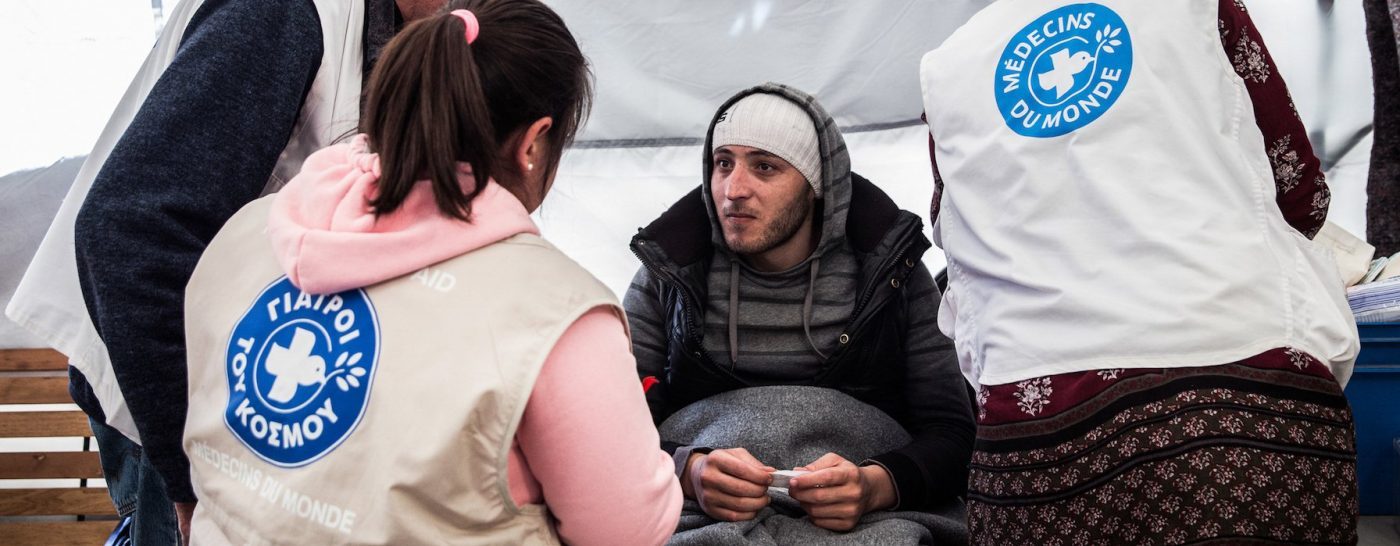World Mental Health Day: Treating invisible wounds
Published 10th October 2017
In many parts of the world, a silent crisis in mental health is unfolding.
Almost half of the world’s population live in a country with less than one psychiatrist per 100,000 people. One in three refugees in camps on the Greek island of Chios has witnessed a suicide. Sierra Leone has just two psychiatrists to help its population cope with shock and grief after the Ebola epidemic.
Doctors of the World’s medical teams work in dangerous and difficult places around the globe, and our teams often include brilliant psychologists and psychiatrists. On World Mental Health Day, we want to thank them and showcase some of the work they do to heal invisible wounds.
GREECE
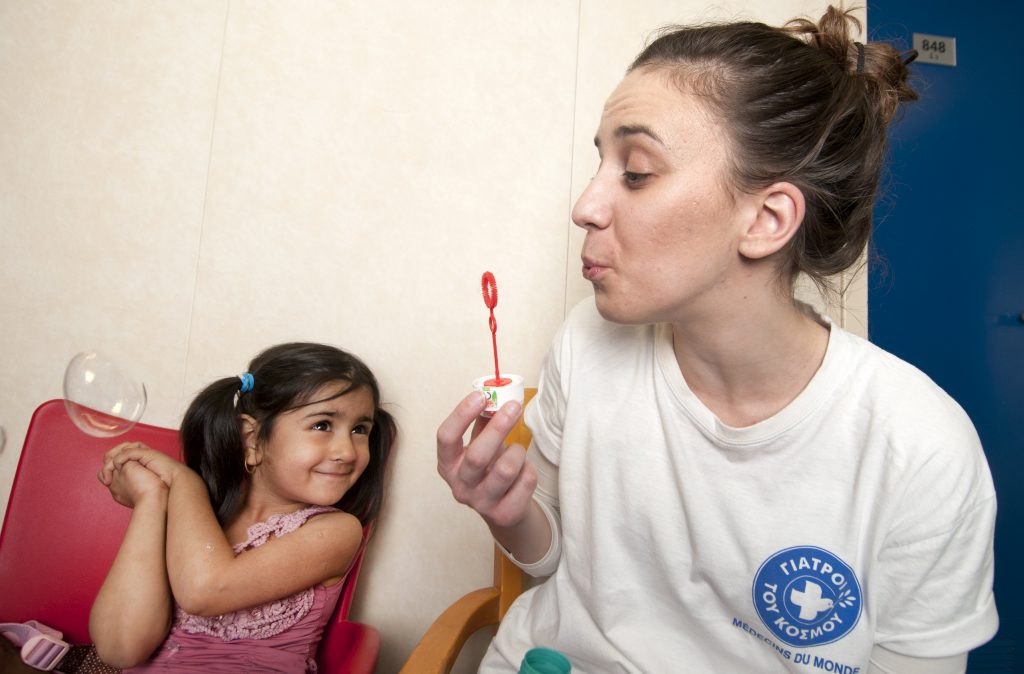
There are over 60,000 refugees stuck in Greece, living in unsafe and unhealthy camps while they are assessed for a possible return to Turkey or permission to join relatives in Europe. In practice, the 2016 EU-Turkey deal has simply created a backlog of claims and appeals, leaving people confined to Greece’s islands.
These men, women, and children are increasingly suffering from mental health problems such as self-harm, suicide attempts, depression, aggression and anxiety. Our psychologists work in these camps to hold one-on-one and group sessions with people in need.
UKRAINE

In towns near eastern Ukraine’s “contact line”, the frontline of a three-year conflict, the sound of shelling rattles through the air at night. While many young people have fled the area, parents and pensioners are often unable to do so. In these ghost towns, isolated people suffer from anxiety, panic attacks and insomnia.
Doctors of the World UK started working in the Luhansk region of eastern Ukraine in 2015. Our psychologists go to villages in mobile clinics and help people like Ludmila (pictured above), who had a nervous breakdown due to the conflict. “Once I opened up to the psychologist, I felt like a hand of salvation had reached out to me,” she says.
You can watch a video about our mental health work in Ukraine here.
NEPAL
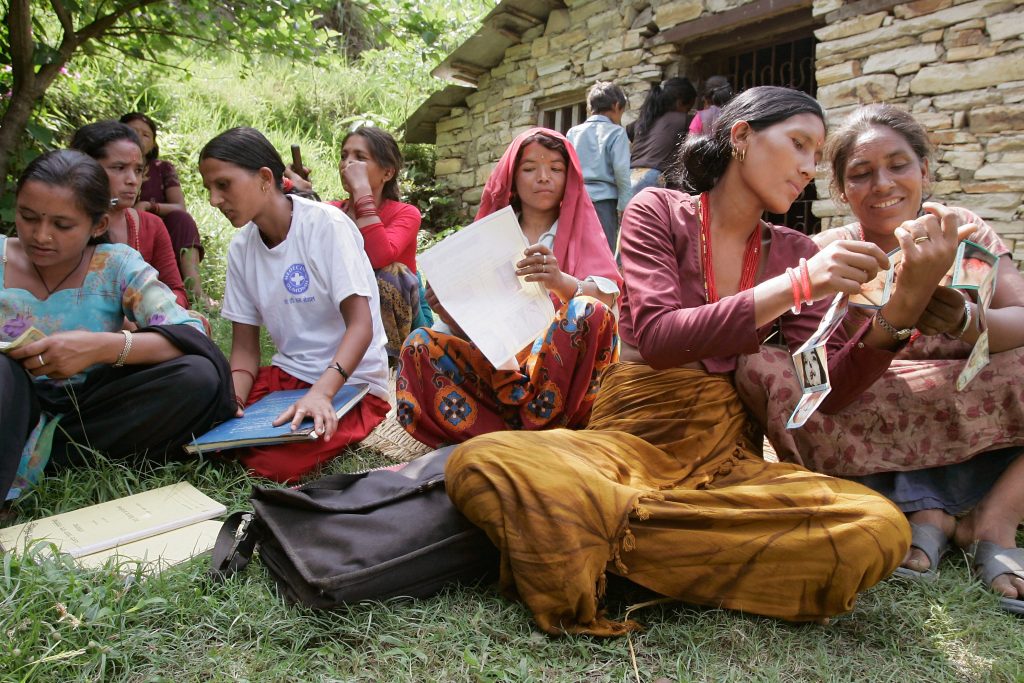
In 2015, Nepal’s strongest earthquake for a century killed over 8500 people. Two years on in Sindhupalchok, the worst-hit district, local women are still helping people recover from the earthquake’s psychological impacts. Women in these villages say mental health issues and drinking are on the rise, partly as many people are still unable to rebuild their houses and start anew.
We have a mental health team doing outreach work in these villages. We also run workshops for local women whom we’re helping to run micro-loan projects, build health clinics, and offer counselling.
THE UK
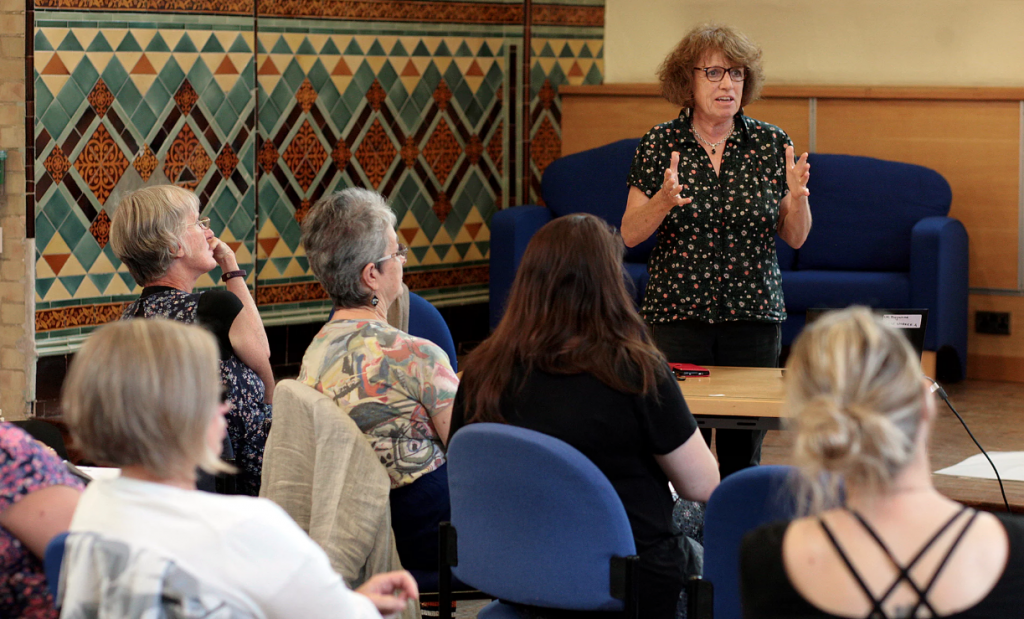
After the Grenfell Tower fire, a staggering 600 survivors and neighbours needed counselling. One hundred of those in need of mental health support were children.
We held two “self-care” workshops for people working with Grenfell survivors, in order to help care-givers look after their own mental health while supporting those in need. “Self-care” is an under-reported issue and care-givers are prone to burnouts if they don’t protect their mental health while handling other people’s grief
LEBANON
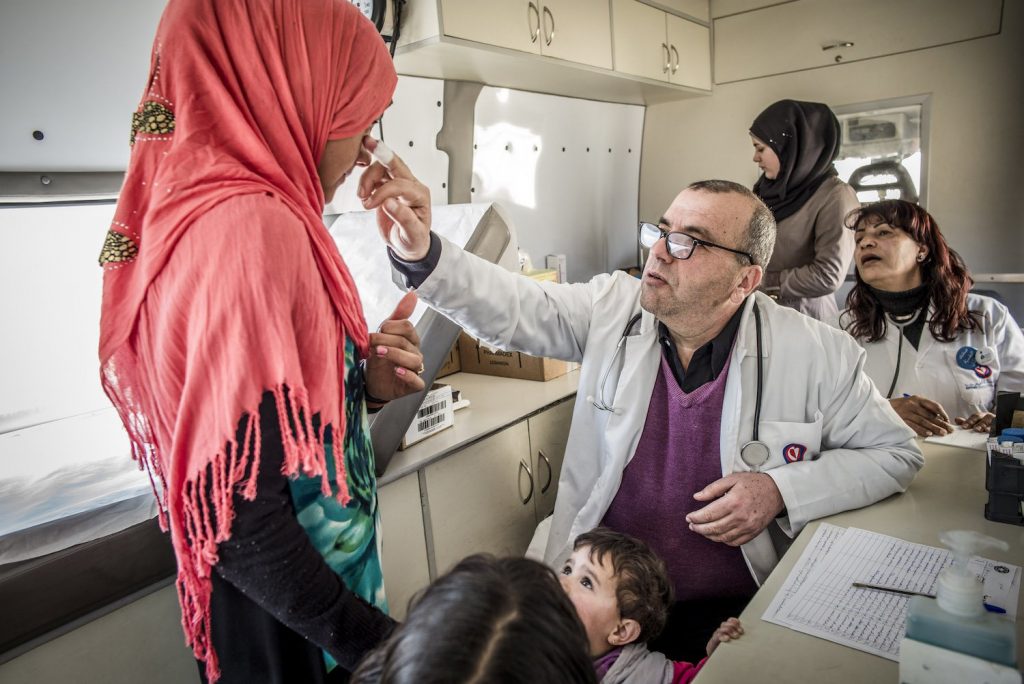
In Lebanon, roughly one in five people is a Syrian refugee. Many of these refugees went through traumatic experiences at home and now live in camps. But Lebanon’s mental health services are largely privatised, concentrated in the capital Beirut, and suffer from shortages of professionals. As a result, refugees suffering from conditions such as PTSD have no one to turn to.
Our psychologists in the Bekaa Valley are treating refugees, including many child refugees. We’re also working with Lebanon’s government to establish the first mental health unit in a public hospital in Beirut.
Doctors of the World’s medical teams treat traumatised people in dangerous and difficult places around the world. Please donate now to help us save lives.
